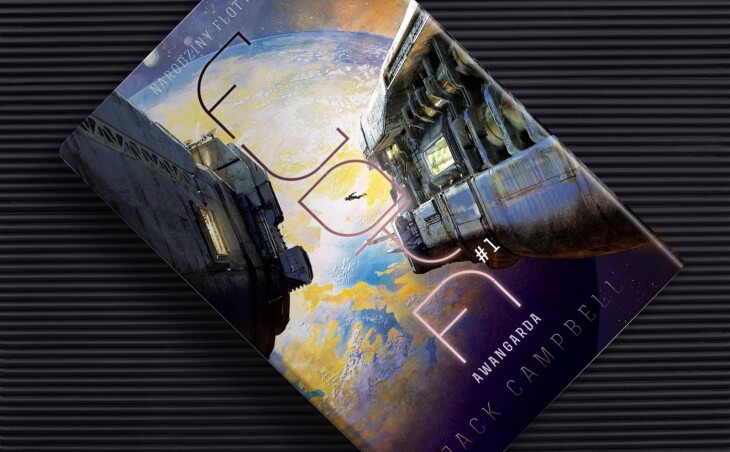Someday someone will come up with a hyperdrive, a hyperspace jumping method, or some other kind of interstellar distance warping. Then humanity will go into space, leaving the Old Earth behind. But he will take politics, wars and other pests with him …
Settlers and pirates
“The Old Earth made it clear that she was proud of her children … but this feeling does not include help in case of problems.” History knows such cases, each time they developed similarly – someone became a robber, others built better and worse palisades. Someone started trafficking in human beings, others organized self-defense units. Pic has always been about consolidating a group of people who will want to work together relatively efficiently. And hope that there will be at least one specialist with leadership talents in it.
In Vanguard you will see the colonization of space in full advancement – the young settlements are still small, but the trade routes between them work quite well. The earthly law is still in force, gradually being adapted to new conditions. Each piece of equipment is worth its weight in gold, and the farther you are from Earth, the bigger it is a colony’s dream come true. They can even decide about its further fate, after all, even a great palisade will not help to fire from orbit.
Everything is weaving weird
We get here sometimes two, sometimes three parallel stories, which are intertwined a bit, mainly because individual characters move between them. This is a completely different view of the space-time universe of Campbell than in Outer Space , where the plot was linear, without skips or even longer breaks.
The action begins on a newly colonized planet. The first settlement has just been built on it, everything is supervised by a council of several people … this is the level of organization of a medieval village, on a very lonely island. When at sea … excuse me, a neighbors ship appears at the jump point offering “moderate fee protection”, the inhabitants have no illusions that they have to deal with this situation entirely on their own. Fortunately, they include people with military experience, miners and even a hacker. Campbell makes a very interesting use of the contrast between the first associations with the slogan “small, poor colony” and the technical achievements that made its creation possible.
The rest of the threads are more focused on individuals. You will meet a politician who has already failed too many times. A lawyer from a really bad neighborhood, who also has her past, or rather an opinion about her place of origin. A soldier, a bit too independent and aggressive, but very effective in action.
In the Vanguard, Campbell appears to focus much more on interpersonal relationships and group dynamics than in previous cycles. It was as if he allowed himself a more relaxed style of writing, closer to the heroes. A bit of fun with chronology, varied characters, a bit more internal monologues, a lot of verbal humor. This is ready-made footage for an action-packed movie. On the other hand, when it comes to describing a strategy or a skirmish, you will not confuse its style with any other – it is, after all, the writer who gave us John Geary and epic space battles. This time, he has one small cruiser or a small group of freshly trained civilians at his disposal, but this does not diminish the emotions evoked by the reader at all.
Campbell’s book is teeming with interesting heroines, full-blown female characters with professions stereotypically considered male. At least, this is the interpretation that Dominika Schimscheiner’s translation, which avoids feminatives like fire, sticks to it. It bothered me a lot, although the text has a lot of energy and reads very fluently. It was also noticeable that despite the reluctance to feminine endings, the translator very willingly uses non-masculine plural forms: where Campbell wrote something like “some men and women” in Polish, for example, “a dozen” appears.
The Lost Fleet prequel
Vanguard and the entire series of The Genesis Fleet that it begins are memories of the past of the Alliance, a great galactic federation that has completely forgotten about the Earth. Fortunately, you don’t need to know anything about it; it is a standalone book which in fact defends itself even as a single volume, although the whole is to have three parts. Those who have already read Campbell will be pleased to hear names that will someday become important. They will quickly find allusions to whom a given character will “grow up”, and what will be important for the further history of space colonization. Others will have a great time discovering a completely new science fiction story, so far only with elements of military character.
Campbell, privately a former military man, is at ease at writing about the space wars of the future. I think I have already mentioned that for me his books are the equivalent of the Legend of the Galactic Heroes anime . Great armies, great politics, single heroes at the head of these giants. While writing the Vanguard, he descended to the surface of the planets and into the interior of civilian transports. He focused on people. Once again he showed that in fantasy he is interested in the issue of organizing the life of communities, including small ones.

